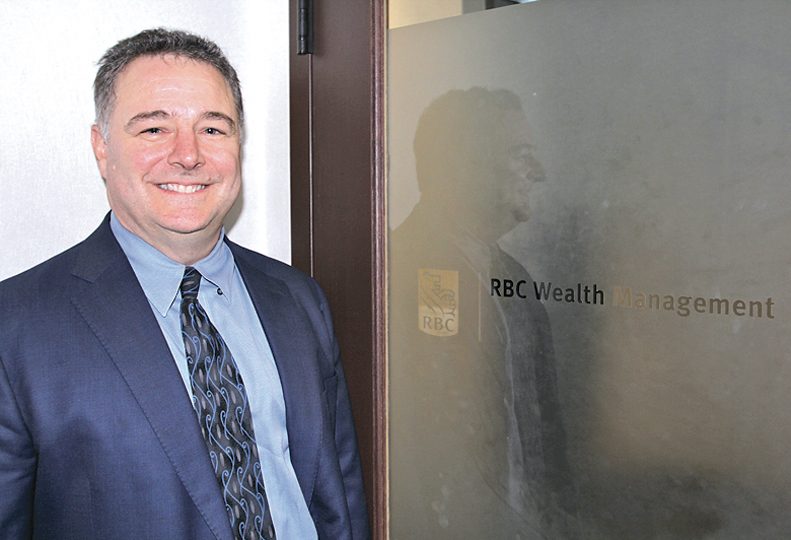
Home » Retirement savings catch-up said possible, not ideal
Retirement savings catch-up said possible, not ideal
Focus on goals when penciling out strategy

December 7, 2017
Children. Divorce. Medical expenses. Unemployment. Grandchildren.
There’s a long list of reasons American’s in their later working years cite as to why they aren’t more aggressively saving—if even saving at all—for retirement.
And it’s one of the worst financial mistakes they can make, say some Spokane-area financial analysts and planners.
“There’s absolutely always going to be a justifiable excuse why you can’t do anything right now,” says Ryan Moore, a Deer Park-based financial adviser with Edward D. Jones & Co.
From Moore’s perspective, his job is to help clients understand and determine what are the things in their lives that are most valuable and help them begin the process of getting financially caught up to one day achieve their goals.
“If there’s not someone in your (financial) life, then begin asking people you trust and find one,” Moore says. “I don’t care what your situation is, every single person can do something,” he says of saving for retirement.
Often, they say, older workers who haven’t aggressively saved for retirement become more motivated to do so because there’s a greater sense of urgency as they have fewer prime working years before them.
Tim Mitrovich, the CEO and chief investment officer of Spokane-based Ten Capital Investment Advisors LLC, says an effective approach his firm takes with clients who need to play catch-up with their retirement savings starts first with a conversation about what they want to do in their later years.
The discussion of how much money they’ll need comes next, Mitrovich says.
Through the years, both Mitrovich and Moore think the general public has become intimidated when they hear it may take millions of dollars to live comfortably after retiring.
“What this has done through the years is led people to take excessive risks, like investing in land speculations and going into that questionable business that their brother-in-law has always talked about,” Mitrovich says.
“Combined with the fact so many people have loosely defined goals about what they want to do in retirement, it’s no wonder so many are completely overwhelmed about the topic of saving for retirement,” he says.
Mitrovich began his career in the investment industry almost two decades ago at Richards, Merrill & Peterson here, designing portfolios and analyzing markets.
Kyle Weir, a senior vice president and senior portfolio manager for RBC Wealth Management in downtown Spokane, says for starters, workers must take advantage of employers’ 401(k) if they aren’t already.
If the employer offers a contribution match, Weir says do all you can to contribute that amount to get the match from the employer.
Individuals who are age 50 or over can make catch-up contributions of up to $6,000 if they’re enrolled in a 401(k), 403(b), a government 457(b), or a Salary Reduction Simplified Employee Pensions, according to the Internal Revenue Service.
At the end of October, the IRS announced that 401(k) contributions limits will increase by $500. In 2018, all workers who participate in an employee sponsored plan will be able to contribute as much as $18,500.
On its website, the IRS says a 50-year-old investing an extra $500 a year could earn an extra $15,000 in retirement income by the time they retire.
Before the conversation about arbitrary numbers
begins, people need to know how much money they’ll need in later years, Mirtovich says.
“Do you want your retirement to involve maintaining a 6,000-square-foot residence? And will it be paid off, or is the plan to scale back and downsize into apartment or condominium in the city’s core where there are more amenities available and you reduce the cost of transportation?”
Other lifestyle considerations to factor, says Mitrovich, include traveling and family. The amount of retirement savings an individual will need can vary based on such factors.
More grandparents today compared to past generations of grandparents are playing a more active role in raising their grandchildren, which can come with costs that previous retirees never had to factor in their retirement budgets, he says.
Donald Morgan, a principal and financial adviser with Independent Wealth Connections LLC, in Spokane Valley, says it’s important to assess where you are versus where you want to be.
Morgan says he starts with what he calls the “financial planning cross.”
“Draw a cross in the center of a page, list your income in the upper left quarter, your expenses in the lower left, your assets in the upper right and what you owe in the lower right,” Morgan says.
Next, look at what it will take to get what you want when you stop working and how much income you will need. Next, consider what you will need to save and pay down in debt to balance out the income/expense equation.
“People often need a coach or planner to help them. And that is really what we do—helping people analyze the issues, create plans and then be there to keep the plan on track when life happens,” Morgan says.
Piggybacking on that sentiment, Mitrovich says, “What we’ve learned is that the key to retirement planning is to help facilitate people in finding out what they really want. How will you know if you achieved your goal if you’ve never defined it?”
He says clients sometimes enter the firm’s office on the skywalk level of the Chase Financial Center as if there was a “monster looking down” on them.
“Here’s the good news. It usually takes less money (for retirement) than what people thought,” he says.
Weir says everyone should know their “retirement number. Our generation has a real high probability of living well into the 90s, and it’s important not to run out of money before you die,” he says.
Latest News Up Close Banking & Finance
Related Articles
Related Products
Related Events

![Brad head shot[1] web](https://www.spokanejournal.com/ext/resources/2025/03/10/thumb/Brad-Head-Shot[1]_web.jpg?1741642753)


